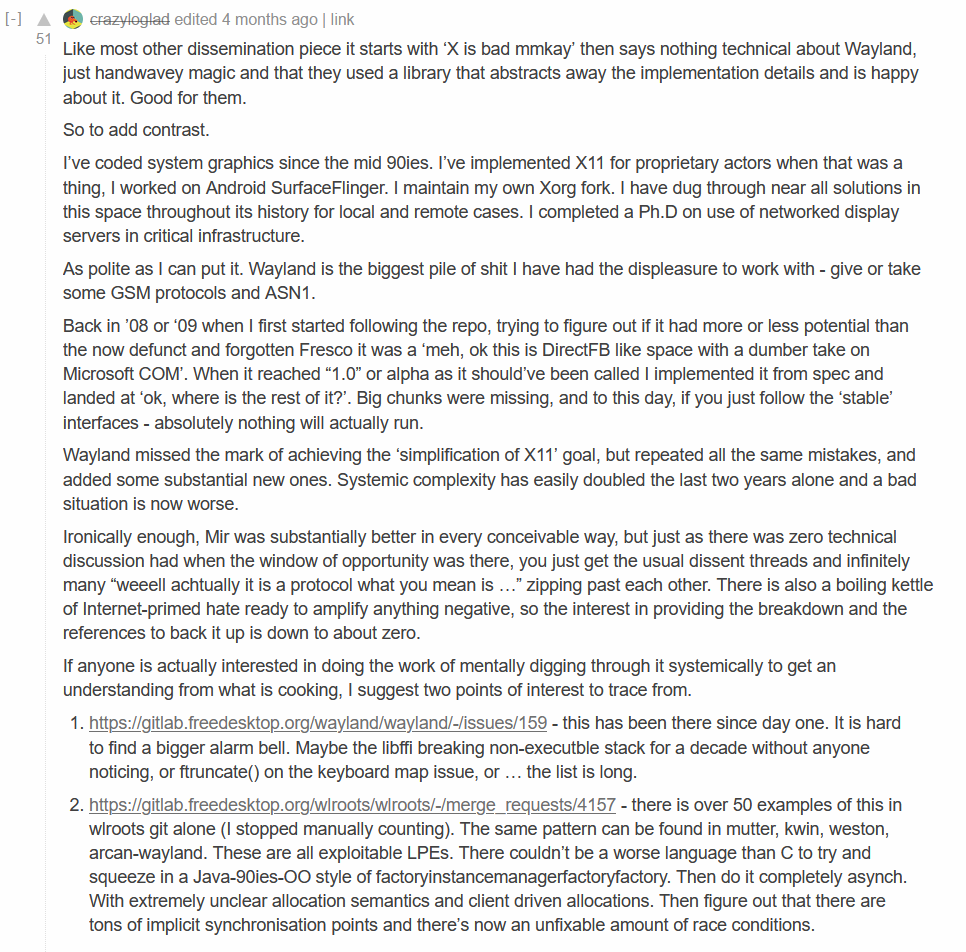this post was submitted on 02 Jan 2024
162 points (81.4% liked)
Linux
56772 readers
650 users here now
From Wikipedia, the free encyclopedia
Linux is a family of open source Unix-like operating systems based on the Linux kernel, an operating system kernel first released on September 17, 1991 by Linus Torvalds. Linux is typically packaged in a Linux distribution (or distro for short).
Distributions include the Linux kernel and supporting system software and libraries, many of which are provided by the GNU Project. Many Linux distributions use the word "Linux" in their name, but the Free Software Foundation uses the name GNU/Linux to emphasize the importance of GNU software, causing some controversy.
Rules
- Posts must be relevant to operating systems running the Linux kernel. GNU/Linux or otherwise.
- No misinformation
- No NSFW content
- No hate speech, bigotry, etc
Related Communities
Community icon by Alpár-Etele Méder, licensed under CC BY 3.0
founded 6 years ago
MODERATORS
you are viewing a single comment's thread
view the rest of the comments
view the rest of the comments

Wayland has mostly positive user reviews because it presents nicely to the user (VRR, scaling, etc.) On the developer front it seems there's a lot of struggle over things that were solved in X11 but for some reason require a lot of debate in Wayland.
These are the two biggest issues I can see that are entirely chalked up to its design. Technical issues (like the "load balancer" thing that keeps Firefox from crashing on Wayland) will be solved in time. However, the above points are unlikely to ever be addressed. Should they be? I don't know.
X11 world is just really as bad. It's just so that Wayland is new and X.Org hacks are so normalized it doesn't register for people how much work you need to put into X to make it work.
Well, you would be disappointed to know that it's somewhat the same fuckery under XOrg as every usable compositor and window manager needs to carry fixes, hacks, and hardcoded workaround for edge cases in X or features that are unsupported today. If you use a Wayland library like you use X libraries it's not that much harder to make a simple Wayland compositor.
This is one of the most cited "wayland issues" and it's IMO completely and utterly wrong. Go look at how convoluted existing XOrg codebases (mutter, metacity, compton, compiz, etc.) are. It's only "simple" if you wish to draw a rectangle upon the screen ( and even then, wlroots exist)